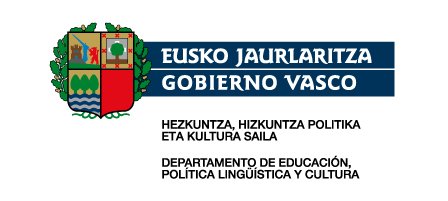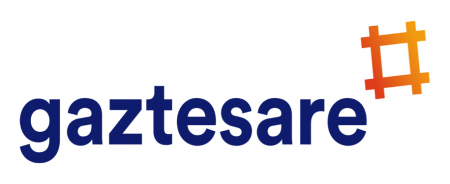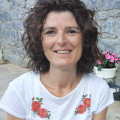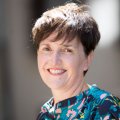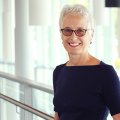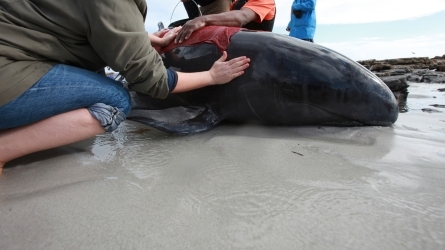
Young voices: Language ideologies and muticulturality
Description
In this seminar we will talk about the linguistic ideologies of young people, focusing mainly on young speakers of minority languages.. For those young people who live their daily lives in multicultural contexts, what social significance and function do languages such as Basque, Catalan or Galician have? what place do these languages occupy in their daily cultural activities, in their local world and in virtual interaction? What influence do new transnational ideological and cultural currents have on their linguistic choices? and on the vision they have about their languages?
The seminar will focus on studies on Basque youth and Basque language, but will also feature the participation of internationally renowned researchers who will expand the debate to the case of Catalan, Irish and Galician.
Objectives
At the seminar we would like to create a space for reflection and debate. Our intention is to make a shared reflection on the state of the matter and also on the future lines of research in the field of youth linguistic ideologies. At the same time, we are convinced that it can also be a source of ideas for new language policies aimed at young people. Therefore, among the guests and participants will also be members of organizations related to language planning.
The seminar also aims to give young people a voice to participate in the panel discussions. To this end, a round table consisting only of young people and led by young researchers involved in action research activities will be held.
Activity directed to
- University student
- Teachers
- Professionals
- planning techniques
Methodology
Round tables and debates will be held with the participation of experts. Training will also be provided for young people and those involved in minority language planning.
Contributors
Directors

Agurtzane Elordui Urkiza
EHU
The researcher and professor Agurtzane Elordui works on the field of Sociolinguistic applied to the media. She teaches on language and communication at the degrees and masters of the Faculty of Social Sciences and Communication. Her research interests are focused on sociolinguistics and media discourse studies. Her current research interests include language ideologies, minority languages, multilingual practices in social media, stylization in audio-visual discourse, and sociolinguistic and ideological change among Basque youth. Nowadays she is a member of the NOR Research Group (IT881-16). Within that research group, and in collaboration with the University of Navarre and the CNRS of France (University of Bayonne), she is the principal researcher of the Project Gaztesare, Multilingualism and glocal identities among Basque youth in the social networks since 2018.
Hizkuntza Ikerketa eta Koordinaziorako Zuzendaria Eusko Jaurlaritzan. Euskal Filologian lizentziatua (EHU, 2002), Hizkuntzen aditu titulua eskuratua (Mondragon Unibertsitatea, 2005) eta Euskal ikasketetan doktorego programa eta ikerketa gaitasuna burutua (EHU, 2008). Lan ibilbidean, euskara eta bere irakaskuntzaren alorra landu du, batez ere: helduen euskalduntzean euskara irakasle eta trebatzaile (AEK eta udal euskaltegiak, 1999-2004); Euskara Biziberritzeko planetan aholkulari (Azpeitiko euskara patronatua, 2004-2005), eta Mondragon Unibertsitatean irakasle (HUHEZI fakultatea, 2004-2008 eta 2012-2014). Ikerketari dagokionez, HIJE taldeko (Hizkuntzaren jabekuntza eta erabilera) eta Eusko Ikaskuntzako Hezkuntza saileko partaide ere bada, eta Soziolinguistika Klusterrean ahozkotasunari buruzko ikerketa eta formazio ezberdinak gauzatu ditu. Hizkuntza Ikerketa eta Koordinaziorako Zuzendari lanetan dihardu egun Eusko Jaurlaritzan.
Speakers

Jokin Aiestaran Etxabe
Jokin Aiestaran is a lecturer in the Basque Language and Communication Department at the Faculty of Social and Communication Sciences of the University of the Basque Country (UPV/EHU), and a member of NOR research group. He has worked on the fields of multilingualism and education, language attitudes and linguistic landscape, and currently, within the Gaztesare project, he is examining the multilingual practices of young Basques on social networks with a focus on language ideologies and identities. In this last line of research, his most recent publications are “Basque in Instagram: A scalar approach to vernacularisation and normativity” (with Agurtzane Elordui, Journal of Sociolinguistics, 2022), “How to be authentic in Instagram? Self-presentation and language choice of Basque university students in a multi-scalar context” (with Agurtzane Elordui, Pragmatics, 2022), and “Euskal gazteen identitate digitalak: benetakotasunaren eraikuntza sare sozialetan” (with Agurtzane Elordui and Libe Mimenza, in the book Gazte eleaniztunak: mintzalari eta mintzagai, 2022).

Borja Alonso Vaamonde
Student. University of Deusto
Borja Alonso Vaamonde Deustuko Unibertsitateko Hizkuntza Modernoak graduan lizentziatua, Literatura Ikasketetako aipuarekin. Graletan "Representations of Childhood in Seamus Heaney's _Death of a Naturalist_". Unibertsitatean “Bilbo Handiko unibertsitate-ikasleen mundantza prozesuak" ikerketan ikerketa-kide moduan parte hartu du. Horrez gain, musikari independientea da, eta kolaboratzaile gisa dabil lanean ANAYA Haritza argitaletxean.
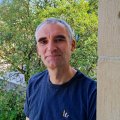
Jaime Altuna Ramírez
UPV/EHU
Gizarte Antropologian graduatua UPV/EHUn eta “Ikasketa Feministak eta generokoak” masterra burutua. Ibilbide profesional luzea (1994. urtetik aurrera) garatu du haur eta gazteen heziketarako programetan, mota ezberdinetako lanak burutuz: kale antzerkia haurrentzat, telebistako haur saioen produkzio lana, ipuin kontalaritza, irakurketa sustatzeko programak, udalekuak, aisialdi zerbitzuen antolaketa eta kudeaketa, aisialdiko begiraleen formazioan... Ibilbide horretan heziketa, jolasa eta hizkuntza uztartzen zituzten egitasmoetan aritu zen eskuhartze programa, argitalpen, hitzaldi, formazio eta ikerketa eginez. 2017tik UPV/EHU-n lanean ari da. Une honetan Soziologia eta Gizarte Langintza Saileko irakasle da eta, ikerketari dagokionez, AFITeko (Antropologia Feminista Ikerketa Taldea) kide da. Bere ikerketa-ildoak, batez ere, hizkuntza- antropologia, haurtzaro eta nerabezaroaren antropologia eta antropologia feministarekin lotuta daude.
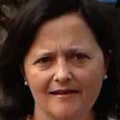
Estibaliz Amorrortu Gómez
Deustuko Unibertsitatea
Estibaliz Amorrortu Euskal Filologian lizentziatua (Deustuko Unibertsitatea) eta Hizkuntzalaritzan doktorea (University of Southern California) da. Euskara Batuarekiko jarreren inguruko Doktorego tesia egin zuen (2000). Gaur Deustuko Unibertsitateko Euskal Hizkuntza eta Kulturako graduan Soziolinguistikaren inguruko gaiak irakasten ditu. Bere argitalpenetan gai hauek landu ditu: hizkuntza aniztasuna, diskurtsoaren azterketa, hizkuntza-praktikak eta ideologiak, besteak beste. Azken urteotan erdaldunen eta euskal hiztun berrien euskararekiko jarrerak, euskal hiztun berrien esperientziak, jarrerak eta identitateak eta, azkenaldian, gazteek euskararen aldeko mudantza-prozesuak burutu ditzaten baldintzak sortzeko ekintza-ikerketa partehartzaile baten dihardu, “Kontzientzia linguistiko kritikoa eta hiztunen agentzia: berdintasun soziolinguistikorako ekintza-ikerketa (EquiLing-Basq)” (PID2019-105676RB-C42 / AEI / 10.13039/501100011033) izeneko proiektuko IN delarik.

Miren Artetxe
University of the Basque Country
Miren Artetxe Sarasola (Hendaia, 1985) has a degree in Basque Philology from the University of the Basque Country (UPV/EHU). Her doctoral thesis was defended in 2020 within the framework of the Doctoral Program in Society, Politics, Culture of the UPV-EHU, under the title: “Linguistic itineraries of the young participants of the bertso-eskolas of Iparralde. Youth identities, linguistic itineraries and legitimation processes”. Her research áreas are linguistic anthropology and sociolinguistics, and she mainly studies youth linguistic practices and ideologies. She currently works as an adjunct professor at the Faculty of Philosophy Education and Anthropology of the UPV/EHU, in the Department of Didactics of Language and Literature, and she is a member of the NOR research group.
Agirre Lehendakaria Centerren proiektuen kudeatzailea. Berrikuntzaren ikuspegi etnografikoa ulertzeko ikerketa-proiektuetan dabil, eta berrikuntza irekiko plataformen ikuspegia oinarri duten esku-hartze proiektuak koordinatzen ditu. Ekonomia eta Enpresa Zientzietan lizentziaduna da (Deustuko Unibertsitatea), eta Psikologian lizentziaduna (UNED). Eskarmentu luzea du euskararen normalkuntzan, eta 18 urtez aritu zen Elhuyarren lanean. Bertan, arlo desberdinetan aritu zen, kudeaketarekin lotutakoak: zientziaren dibulgazioan batetik; eta kudeaketan orokorrean bestetik (komunikazioan eta marketinean, eta pertsonetan). Azken zazpi urteak zuzendari nagusi gisa jardun zuen.

Paul Elizondo Kortazar
Student. University of the Basque Country
Paul Elizondo Kortazar, student of the Faculty of Communication and Society of the UPV. I studied a higher degree of marketing in Vitoria/Gasteiz. The final project was a real tourist project in the Ayala region, along with the municipalities of Amurrio and Orduña. I was a student selected through a company called Demola. Graduated in Advertising and Public Relations in 2021 in CSC faculty. I did the GFR on the management of information in international organizations, focusing specifically on the management of information about Coyugoslavia by WHO and EMA. This year, I'm about to finish my degree in journalism, and the latest graduate work is a report on the evolution of Bermeo fishermen and evils for 50 years in implementing education and new technologies. Highlighting their current social recognition. In 2017 and 2018, I was an announcer at GDKO irratia, which today is called Mozolo Irratia.
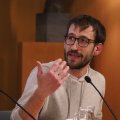
Avel-lí Flors Mas
Universitat Oberta de Catalunya
Avel·lí Flors-Mas (Castelló de la Plana, 1988). Tenure-eligible lecturer in Sociolinguistics and Language Policy at the Department of Catalan Philology and General Linguistics at Universitat de Barcelona, member of the steering committee of CUSC-UB (Research Centre for Sociolinguistics and Communication at UB), and assistant professor at Universitat Oberta de Catalunya. He earned a PhD degree in Catalan Studies from UB, with a dissertation about the role of linguistic ideologies and practices in the construction of the social identities of Catalan and Valencian teenagers. His lines of enquiry include the sociolinguistics of the youth, the sociolinguistics of immigration, demolinguistics, and language policy and planning, with a focus on the field of education. From 2019 he has been a member of the steering committee of the Catalan Society of Sociolinguistics (SoCS), affiliate of the Institute for Catalan Studies.

Estitxu Garai Artetxe
University of the Basque Country
Estitxu Garai Artetxe holds a PhD in Audiovisual Communication and Advertising and is a lecturer at the University of the Basque Country. She previously holds a degree in Advertising and Public Relations and a Masters in Social Communication. She has been a Visiting Researcher at the Public University of New York and in Ireland, at the University of Limerick. Her research has focused on minority languages and feminism; the main research topics have been bilingual advertising and patriarchal regeneration mechanisms. She currently leads a team that studies language branding. On the other hand, she has been a member of the Board of Directors of Berria Group. She is an activist of various social movements and also works as a political analyst in the Basque media: Argia, ETB1, ETB2, Euskadi Irratia and Hamaika TB among others. In addition, in his professional career, she has been a communications consultant for various companies and public administration.
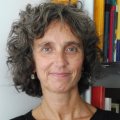
Jone Miren Hernández García
UPV/EHU
She holds a bachelor’s degree in Information Sciences and Social and Political Sciences from the University of the Basque Country (UPV/EHU). In 2005 she defended her doctoral thesis in the Department of Philosophy of Values and Social Anthropology (UPV/EHU) titled “Euskara, comunidad e identidad: elementos de transmisión, elementos de transgresión”, a work acknowledged through it receiving the First Marqués de Lozoya Prize awarded by the Spanish Ministry of Culture. Besides the degrees cited she has also undertaken postgraduate training in the following fields: Basque Culture, Gender and Equality Politics and Sustainable Development. For several years she was a technician in social and market research in a consultancy and, later, went on to work as the Equality Technician for the Tolosa Town Council in Gipuzkoa. She has researched questions linked to the Basque language (Euskara) and culture, young people, free time and sport; principally from a feminist and gender perspective. Her latest publications have been related to bertsolaritza or the oral improvisation characteristic of the Basque Country. She is currently an assistant lecturer in Social Anthropology at the UPV/EHU and Director of the Mikel Laboa Chair.
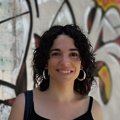
Marina Massaguer Comes
Universitat Oberta de Catalunya
Marina Massaguer Comes holds a degree in Catalan Philology from the Universitat Rovira i Virgili of Tarragona. She has obtained the Postgraduate Degree in Correction and Linguistic Quality from the Universitat Autònoma de Barcelona and the Postgraduate Degree in Management of Linguistic and Cultural Diversity from the Universitat Oberta de Catalunya. She was a lector in Catalan at the University of Oxford between 2012 and 2015. She is part of the team of sociolinguists at the Center for Research in Sociolinguistics and Communication of the Universitat de Barcelona (CUSC-UB), from where she has coordinated, among others, the reports “Arguments to promote the use of Catalan among young people”, “Catalan, youtubers and instagramers: A starting point to promote the use of the Catalan language” and “Contexts, motivations and strategies for successful Catalan learners at the Consorci per a la Normalització Lingüística”, written jointly with Avel·lí Flors-Mas and F. Xavier Vila. She is currently finishing her PhD research “Non-Catalan speakers in Catalonia: social identities, inequalities and the Catalan language” at the Universitat Oberta de Catalunya.

Yolanda Olasagarre
EIBZ
Soziologia eta Zientzia Politikoetan Lizentziatua (Deustuko Unibertsitatea, 1989). Hizkuntza-Plangintza Graduondoko Unibertsitate-Diplomatua (EHU, 1994). “Adimen gaitasun handiko ikasleen diagnostikoan eta heziketan” Unibertsitate-aditu titulua (UNED, 2011). 2006an hasi nintzen Euskararen Irakaskuntzarako Baliabide Zentroan (EIBZ, Nafarroako Gobernua, Hezkuntza Departamentua) jarduneko irakasleen prestatzaile gisa zenbait formazio sortu eta ematen. Batez ere, honako arlotan aritzen naiz: ikasleen ahozko komunikazio gaitasunean, ikasleen hizkuntzarekiko motibazioan eta adimen gaitasun handiko ikasleen arretan. Prestakuntzaz gain irakasleei baliabideak eta laguntza eskaini behar zaiela sinetsita nago eta horregatik sortu ditugu Ahozko hizkuntza irakastea webgunea eta Motibazioa Sustatzeko Baliabideak bloga. Eta arlo horiek ikerketarekin lotzea beharrezkoa dela pentsatuta DBHko ikasleen hizkuntza atxikimendua hobetzeko ikerketa eta esku-hartzea burutu genuen 2016an. Adimen gaitasun handikoen gaiarekin lotuta blog pertsonala.

Ane Ortega Etcheverry
Begoñako Andra Mari Irakasleen Unibertsitate Eskola
Ane holds a degree in Spanish Philology by the University of Deusto, a MA in Translation Studies by Warwick University and a PhD in Sociolinguistics and Hispanic Studies by the University of London. She is a lecturer at Begoñako Andra Mari Teacher Education college. Before that she worked in the area of Spanish as a Foreign Language in a number of British institutions, and at HUHEZI, University of Mondragon. Her teaching activity focuses in the area of language teaching in bi/multilingual contexts and in second language learning and teaching. Her research activity focuses in the field of socioliguistics of minoritised languages and language education in multilingual contexts. She is part of the ELEBILAB research group of the University of the Basque Country and also a member of the Steering Committee of the European COST Action IS1306 "New Speakers in a Multilingual Europe: Opportunities and Challenges". She is a member of the UNESCO Chair of World Language Heritage of the UPV/EHU.
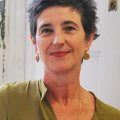
Elixabete Perez Gaztelu
Deustuko Unibertsitatea
Professor (2002) at the University of Deusto. Member of the interdisciplinary communication research team (IT1212-19, group A, Basque Government (2019)). She is currently director of the Basque Studies Institute of UD. Corresponding member of Euskaltzaindia (2006). In his doctoral thesis Published in 1995. ‘Koldo Mitxelenaren euskara noranahikotzea: aitzindariak, hiztegia eta hizkuntzalaritzako hitz berezituen azterketa’ she analyzed the linguistic ideology and terminological creativity of Luis Michelena (1915-1987). From 1994 to 2004 he published on Lexicology and standardization of the Basque language, and participated in coordinated research projects (MINECO), of a comparative interlinguistic nature, together with universities of the Basque Country, Catalonia and Madrid. She is currently participating in the coordinated project Equiling (Critical Linguistic Awareness and Speakers Agency: Action-Research for Sociolinguistic Equality). His research focuses on the linguistic communication practices of young Basques. Started with the project Communication skills from baccalaureate to university: study of communication skills.

Joan Pujolar Cos
Universitat Oberta de Catalunya
Joan Pujolar (Olot, 1964), Llicenciat in Anglo-Germanic Philology (1987) and Catalan Philology (UA Barcelona, 1988), MA Language Studies (1991) and PhD (1995, Lancaster University). Associate Professor and current director of the Doctoral Program in Information and Knowledge Society at the Universitat Oberta de Catalunya. Director of the Research Group on Language, culture and Identity in the Global World. President of the Catalan Society of Sociolinguistics and Vice-chair of the ISCH COST Action IS1306 “New Speakers in a Multilingual Europe: Opportunities and Challenges”. His research focuses on how language use is mobilized in the construction of identities and its implications for access to symbolic and economic resources. He has conducted research on the use of Catalan amongst young people, immigrants and in the economic sector, particularly in tourism and heritage contexts, as well as on multilingualism and gender. He now leads a project on “new speakers” and the experience of peo
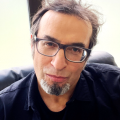
Fernando Ramallo Fernández
Universidade de Vigo
Fernando Ramallo (Vigo, 1965). Professor of General Linguistics at the University of Vigo. He was a member of the Committee of Experts on the European Charter for Regional or Minority Languages of the Council of Europe (2013-2019). Current Director of the Area of Linguistic Standardization of the University of Vigo. Corresponding Member of the Royal Galician Academy. He researches on language-political-society relations, taking as its axis the processes of linguistic (dis)minorization and its social, political, legal and linguistic consequences. In recent years he has focused on the study of the new speaker; in particular, on the relevance of this speaker in the transformation of the sociolinguistic order, including the possibilities of revitalization of the Galician language. He is also interested in late capitalism as a theory and practice of subjectivity, and the consequences of such an ideology in the construction of sociolinguistic subjects. Some of his recent publications include the coordination of the book 'A lingua en 2050' (2021) and the co-publication of 'New-speakers of minority languages in the Spanish State' (2019).
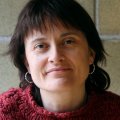
Rosa Ramos Alfaro
EIBZ
Euskara teknikaria 1989. urtetik Nafarroako hainbat toki entitatetan. Ibilbide profesionalaren hasieratik uztartu ditu lan teknikoa udal administrazioan eta Soziolinguistikaren lanketa hainbat arlotan. Horrela, argitalpenak kaleratu ditu Hizkuntza Plangintzari buruz eta Nafarroako egoera demolinguistikoari buruz eta ikastaro eta hitzaldiak eman ditu Soziolinguistika aplikatua sustatzeko. Esaterako, Soziolinguistika irakasgaia irakatsi zuen EHUko Euskalduntze eta Alfabetatzerako Graduondoan eta, hainbat urtez, UEUko Soziolinguistika Saileko kidea izan zen. Elkarlanean aritu da, halaber, Soziolinguistika Klusterrarekin eta Euskaltzaleen Topagunearekin unean uneko proiektuetan. Euskaltzain urgazlea da 2016. urtetik. Azken aldian gazteen hizkuntzaren atxikimendua ikertu du Nafarroako irakasleen formazioaren testuinguruan, Nafarroako Hezkuntza Departamentuaren Euskararen Irakaskuntzarako Baliabide Zentroarekin elkarlanean. Ildo horretan 2019. urtean “DBH-ko hizkuntza atxikimendua hobetzeko ikerketa eta esku hartzea” argitaratu zuen, Yolanda Olasagarrerekin eta Carlos Vilchesekin bat

June Telletxea Franco
Student. University of Deusto
June Telletxea Franco Deustuko Unibertsitateko Gizarte Hezkuntza eta Gizarte Laneko azken urteko ikaslea. Graletan "Deustuko Unibertsitatearen Berdintasun-Planaren kontziliazio-neurrien balorazioa” ikerketa aurkeztu du Gizarte Lanean eta “Zaintza-lanak erdigunean: etxe-langile migratuen aktibismoa eta aldarrikapenak” ikerketa aurkeztuko du Gizarte Hezkuntzan. Unibertsitatean “Bilbo Handiko unibertsitate-ikasleen mundantza prozesuak" ikerketan ikerketa-kide moduan parte hartu du. Horrez gain, Bilboko Mugimendu Feministako eta auzo-mugimenduko eragile desberdinetako kidea da.
Jacqueline Urla is Professor of Anthropology at the University of Massachusetts Amherst and Associate Editor of the International Journal of the Sociology of Language. She specializes in cultural and linguistic anthropology and has conducted decades of research on the changing discourse and practices of Basque language advocacy. She has used ethnographic methods to examine such issues as language standardization, youth media, Basque in radical rock, language statistics, new speaker identities, and language and neoliberalism. She is the author of Reclaiming Basque: Language, Nation and Cultural Activism (2012) and is co-editor with. Fernando Ramallo, “Activating New Speakers: Research among Spain’s Historic Linguistic Minorities.” in Journal of Multilingual and Multicultural Development
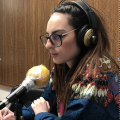
Nerea Vicente
Student. University of the Basque Country
Nerea Vicente Azpeitia is a student of journalism at the UPV Faculty of Social Sciences and Communication. She is 25 years old. In the third year he worked as a collaborator in the PortuRadio Cafeteria program for a year, where he discovered that radio is his passion, and in the fourth year he did an internship in Onda Vasca. He is currently doing the TFG, combining graphic design and journalism.
Registration fees
| Registration face-to-face | Until 07-06-2022 |
|---|---|
| 0 EUR |
| Registration Live Online - ZOOM | Until 07-06-2022 |
|---|---|
| 0 EUR |
Venue
Azkuna Zentroa
Plaza Arriquibar, 4 - 48010 Bilbao
Bizkaia
Azkuna Zentroa
Plaza Arriquibar, 4 - 48010 Bilbao
Bizkaia
